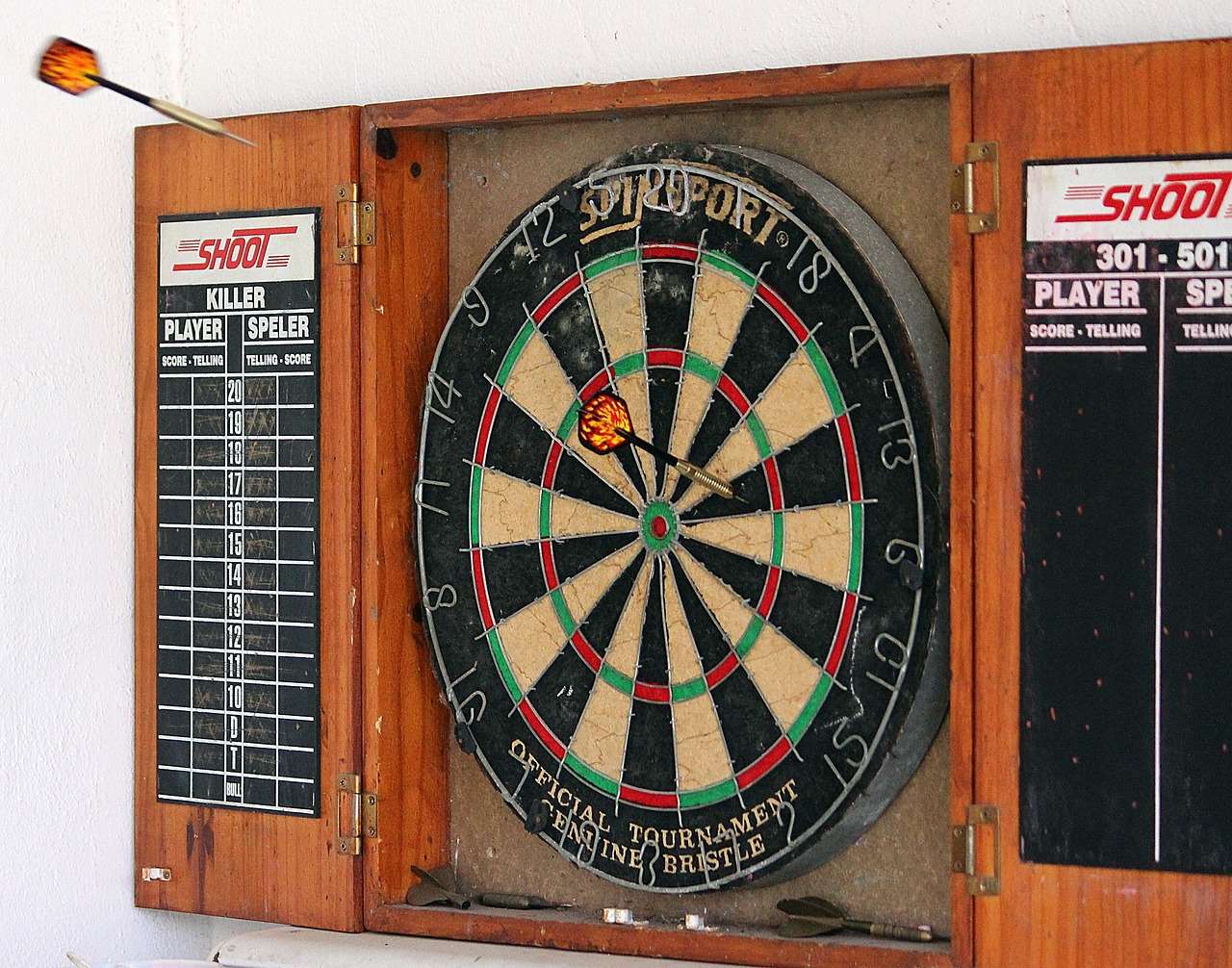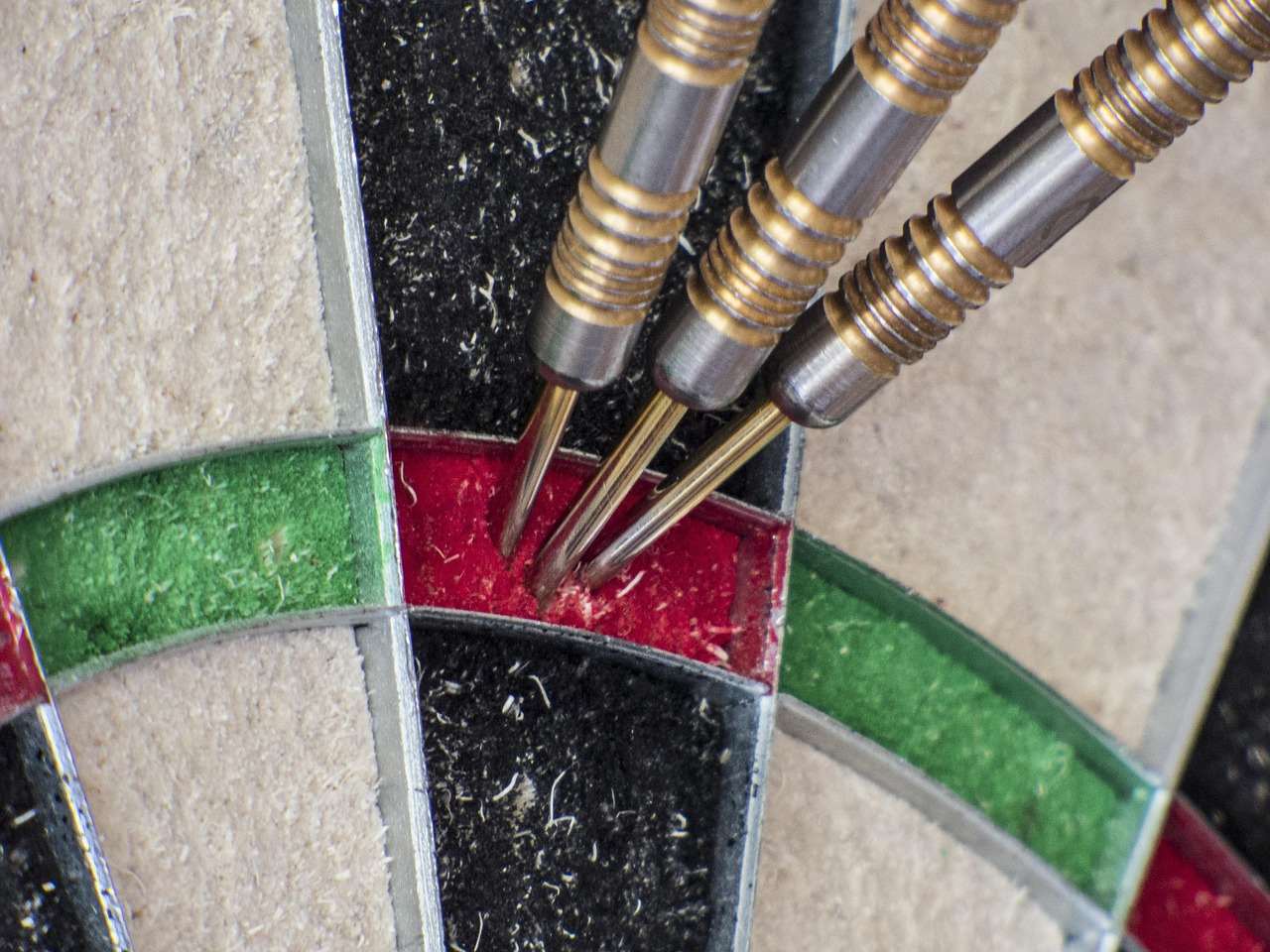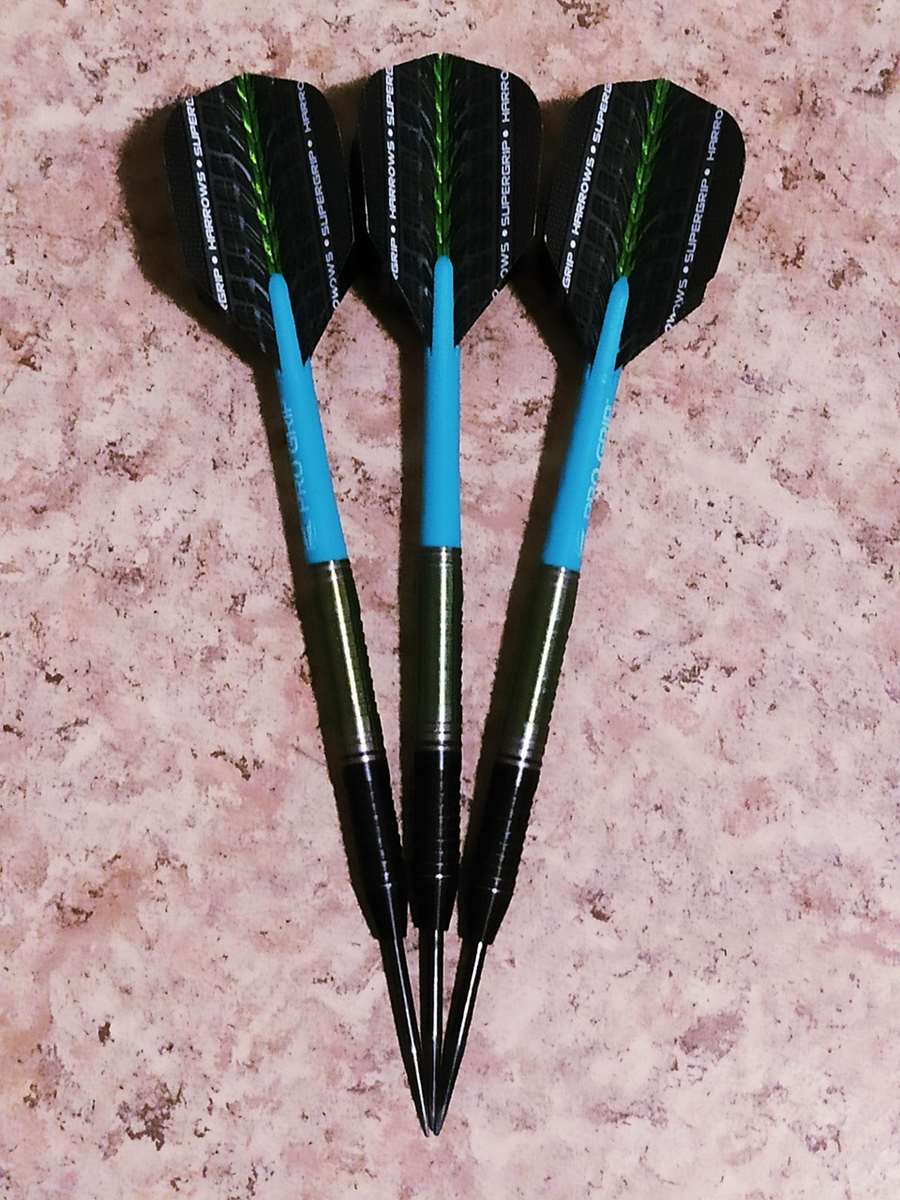Finding the perfect dart wallet size is crucial for protecting your investment and keeping your darts organized; this Dart Wallet Size Guide helps you choose the ideal wallet based on dart length, accessory needs, and portability preferences. We’ll explore various wallet types, materials, and features to ensure your darts are always ready for your next game.
⚠️ Still Using Pen & Paper (or a Chalkboard)?! ⚠️
Step into the future! The Dart Counter App handles all the scoring, suggests checkouts, and tracks your stats automatically. It's easier than you think!
Try the Smart Dart Counter App FREE!Ready for an upgrade? Click above!
Understanding the Importance of a Dart Wallet
A dart wallet is more than just a storage container; it’s a vital piece of equipment that safeguards your darts from damage. Proper storage prevents bent flights, broken shafts, and chipped barrels, ultimately extending the lifespan of your darts. Beyond protection, a good wallet keeps your darts organized, making them easily accessible when you need them. Think of it as an investment in your darting experience, ensuring consistency and performance every time you play.
Consider these benefits of using a dart wallet:
- Protection: Shields darts from impacts and the elements.
- Organization: Keeps darts, flights, shafts, and accessories neatly arranged.
- Portability: Makes it easy to transport your darts to different locations.
- Longevity: Extends the life of your darts by preventing damage.
Without a proper wallet, your expensive dart set might as well be thrown unprotected in a drawer and risk unnecessary damage. It also helps you keep all the accessories in one place, so you do not have to start searching frantically before each game.

Factors to Consider When Choosing a Dart Wallet Size
The ideal dart wallet size depends on several factors, including:
- Dart Length: The primary factor determining the necessary wallet length.
- Number of Darts: Single sets (3 darts) require smaller wallets than those designed for multiple sets.
- Accessory Storage: Do you need space for extra flights, shafts, tips, or a dart tool?
- Portability: Do you prefer a compact wallet for easy transport or a larger one that can hold more?
Dart Length and Wallet Size
Measuring your darts from tip to tail is essential. Add a small buffer (about 0.5 to 1 inch) to accommodate the dart’s profile and prevent it from being squeezed too tightly. Many wallets specify the maximum dart length they can accommodate. Pay close attention to this measurement to avoid damaging your flights.
If you are planning to upgrade your dart in the future, then you might consider buying a wallet that can accommodate a dart longer than your current ones. This way, you are future-proofing your purchase.
Accessory Storage Needs
Assess the number of accessories you typically carry. If you only need a few spare flights and shafts, a slim wallet with minimal pockets may suffice. However, if you carry multiple sets of flights, different shaft lengths, a dart tool, and other accessories, you’ll need a wallet with ample storage compartments. Some wallets even have dedicated pockets for credit cards or identification.

Portability and Convenience
Consider how you’ll be transporting your darts. If you primarily play at home, a larger wallet might be acceptable. But if you frequently travel to dart leagues or tournaments, a compact and lightweight wallet is essential. Look for wallets with a comfortable carrying handle or a shoulder strap for added convenience.
Types of Dart Wallets and Their Sizes
Dart wallets come in various shapes and sizes, each offering different features and levels of protection. Here’s an overview of some common types:
- Hard Cases: Offer the most protection and are typically larger in size.
- Soft Cases: More compact and lightweight, providing good protection for everyday use.
- Fold-Out Wallets: Offer ample storage and easy access to darts and accessories.
- Slim Wallets: Designed for minimal bulk and maximum portability.
Hard Cases: Maximum Protection, Larger Size
Hard cases are constructed from rigid materials like plastic or metal, providing superior protection against impacts and crushing. They often feature foam inserts with pre-cut slots for darts and accessories. While they offer the best protection, they tend to be bulkier and heavier than other types of wallets. If you travel a lot, you might need to consider a hard case to ensure your darts will not get damaged.
Soft Cases: Balanced Protection and Portability
Soft cases are made from flexible materials like nylon or leather, offering a good balance of protection and portability. They usually feature elastic straps or pockets to hold darts and accessories in place. Soft cases are a popular choice for casual players who want a lightweight and convenient way to transport their darts. Considering Choose Best Dart Equipment to go along with your new wallet can further protect your darts.
Fold-Out Wallets: Ample Storage and Easy Access
Fold-out wallets unfold to reveal multiple compartments and pockets for storing darts, flights, shafts, and other accessories. They offer excellent organization and easy access to your equipment. However, they can be bulkier than soft cases when folded up.

Slim Wallets: Minimal Bulk, Maximum Portability
Slim wallets are designed for players who prioritize portability above all else. They typically hold only a single set of darts and a few essential accessories. Slim wallets are ideal for carrying in a pocket or small bag.
Materials Used in Dart Wallets
The material of a dart wallet affects its durability, weight, and overall appearance. Common materials include:
- Nylon: Lightweight, durable, and water-resistant.
- Leather: Stylish and durable, but can be more expensive.
- Plastic: Affordable and easy to clean, but may not be as durable as other materials.
- Metal: Provides excellent protection but can be heavy.
Nylon: Practical and Affordable
Nylon is a popular choice for dart wallets due to its lightweight, durability, and water-resistant properties. It’s also relatively inexpensive, making it a budget-friendly option. Nylon wallets are easy to clean and maintain, making them ideal for everyday use.
Leather: Stylish and Durable
Leather dart wallets offer a touch of elegance and sophistication. Leather is a durable and long-lasting material that develops a unique patina over time. However, leather wallets are typically more expensive than nylon or plastic wallets. Leather dart wallets can be a great way to showcase your personality and style.
Plastic: Budget-Friendly Option
Plastic dart wallets are an affordable option for players on a budget. They are easy to clean and maintain but may not be as durable as nylon or leather wallets. Plastic wallets are a good choice for beginners or casual players who don’t want to spend a lot of money on a dart wallet.

Metal: Maximum Protection
Metal cases are the most durable but can be heavy and less flexible in terms of design. These are suitable for those who are extra cautious of their darts, or are travelling with them and want to be sure they don’t get damaged. This type of case may be more expensive.
Measuring Your Darts for the Perfect Fit
Accurately measuring your darts is crucial for selecting a dart wallet size that provides a snug and secure fit. Here’s how to measure your darts correctly:
- Gather your materials: You’ll need a ruler or measuring tape.
- Measure from tip to tail: Place the ruler or measuring tape alongside your dart, starting at the tip of the point and ending at the end of the flight.
- Record the measurement: Note the measurement in inches or millimeters.
- Add a buffer: Add approximately 0.5 to 1 inch (1.3 to 2.5 cm) to the measurement to allow for a comfortable fit and prevent the flights from being crushed.
Once you have the measurement, you can compare it to the dimensions provided by dart wallet manufacturers. Always choose a wallet that is slightly larger than your dart length to ensure a proper fit.
Tips for Maintaining Your Dart Wallet
To keep your dart wallet in good condition and extend its lifespan, follow these tips:
- Clean your wallet regularly: Wipe down the exterior with a damp cloth to remove dirt and dust.
- Avoid overfilling: Don’t cram too many darts and accessories into your wallet, as this can damage the contents and stretch the material.
- Store your wallet in a cool, dry place: Avoid exposing your wallet to extreme temperatures or humidity.
- Replace worn or damaged components: If any of the zippers, straps, or elastic bands become damaged, replace them promptly to prevent further damage to your darts.
Taking good care of your dart wallet will help protect your investment and keep your darts in top condition for years to come. It is vital to consider the longevity of your equipment. Investing In Premium Dart Equipment can ensure that your wallet (and darts) lasts for a long time.

Finding the Best Dart Wallet for Your Needs
Ultimately, the best dart wallet for you depends on your individual needs and preferences. Consider the factors discussed in this Dart Wallet Size Guide, such as dart length, accessory storage, portability, and material. Read reviews from other dart players to get their opinions on different wallets. Do you know the Difference Budget Premium Darts? The price point you are aiming for could influence your wallet choice.
Visit local dart shops or online retailers to browse the selection and find a wallet that meets your requirements. Don’t be afraid to try out different wallets to see which one feels the most comfortable and secure in your hand. Quality Comparison Budget Premium Darts can show you how to find the best wallets at various price points.
Conclusion
Choosing the right dart wallet size is an essential step in protecting your darts and enhancing your darting experience. By considering dart length, accessory storage, portability, and material, you can find a wallet that perfectly suits your needs. Remember to measure your darts accurately and follow the tips for maintaining your wallet to ensure its longevity. Now that you have a better understanding, go out there and find the perfect dart wallet to protect your darts and elevate your game. Are Premium Darts Worth It? Absolutely, and that’s why they deserve the best protection!
Hi, I’m Dieter, and I created Dartcounter (Dartcounterapp.com). My motivation wasn’t being a darts expert – quite the opposite! When I first started playing, I loved the game but found keeping accurate scores and tracking stats difficult and distracting.
I figured I couldn’t be the only one struggling with this. So, I decided to build a solution: an easy-to-use application that everyone, no matter their experience level, could use to manage scoring effortlessly.
My goal for Dartcounter was simple: let the app handle the numbers – the scoring, the averages, the stats, even checkout suggestions – so players could focus purely on their throw and enjoying the game. It began as a way to solve my own beginner’s problem, and I’m thrilled it has grown into a helpful tool for the wider darts community.